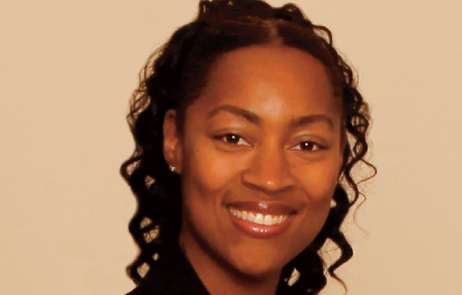BROWARD – Children who are not taught about money often grow up to become adults who struggle with it; manifesting in an inability to save, budget and manage their finances in a way that leads to financial freedom. And while those issues are not exclusive to the black community, they are stubborn problems.
Trellanee Moore-Adderley, a financial professional with Axa-Advisors, LLC, said the key to helping the black community escape poverty is to teach kids about money.
“We have to start with our children. It starts at an earlier age. What I tried to do is go into middle school and teach them about making smart choices,” she said.
Instilling the importance of saving in children is vital, Moore-Adderley shared.
“The first step is helping them recognize if they are given an allowance for their chores, for them to take 10 percent of that and put it in their piggy bank or a savings account. I always tell parents they should open a savings account for their children so they can see that balance grow over time.”
She practices what she preaches with her seven-year old daughter.
“My own daughter has several piggy banks. Whenever we travel; I like to get a piggy bank with that city’s name on it,” she shared, adding that her daughter has already grasped the concept of interest. “She’s going to be a lender and not a borrower,” stated Moore-Adderly, who said helping children to understand the value of a dollar is also important.
“If they have money and they want to go shopping for a friend’s party, Christmas, or whatever it is – helping them to see this is how much money you have, if you’re going to spend it, spend a portion of it because if you spend it all, you won’t have any money. Getting children involved in the process…is very, very beneficial,” she explained.
It is not impossible to help adults change the way they handle money, however, she said it is a challenge.
“Often times, by the time you become an adult, you’ve made so many bad decisions and it’s hard to turn them around. Working with adults,” she said, “is a little different. With a majority of those with whom she counsels, “Living paycheck to paycheck, they don’t know where their money is going.”
The first step is creating a budget together.
“I have them get their checking account, bank statement, all of their bills, and we go through an exercise together. Once they can see where they’re spending their money, versus the income that they have coming in, then it’s like their ‘ah ha’ moment when they realize that they need to change a behavior.”
People underestimate how much they spend on non-essentials.
“Most people spend a ton of money on eating out. They don’t realize how much they’re spending in a week and how it adds up into a year,” she shared. “We come up with strategies; review those strategies to see that they’re working.”
Her desire to educate people about money began when she saw millionaire athletes lose theirs.
“Growing up, I had the pleasure of being in an industry where athletes made a ton of money and I saw them lose the money. And I couldn’t figure out why.”
She discovered that the common dominator when people lose money, whether millionaire or working class, is a lack of education about how to manage it.
Moore-Adderley offers free financial literacy workshops to help people, “align their income, expenses and become debt free.”
She has a special interest in helping women transform their relationship to, and understanding of, money.
“We spend a lot of money on luxury items, but we don’t have any savings,” she shared, adding that women are reluctant to ask questions “because we don’t want to appear to not be intelligent.”
Pay inequities between men and women exist, in part, because women often fail to request a better salary, she said.
“Even when it comes to getting a job, and we’re made an offer, we don’t have the skills to negotiate what our value truly is. We’re always behind the eight ball trying to catch up.”
She noted that men are not the only people making more than black women.
“White women make more than us for the same job. They have more savings than we do because they were taught an earlier age that they have to put that money away.”













No Comment